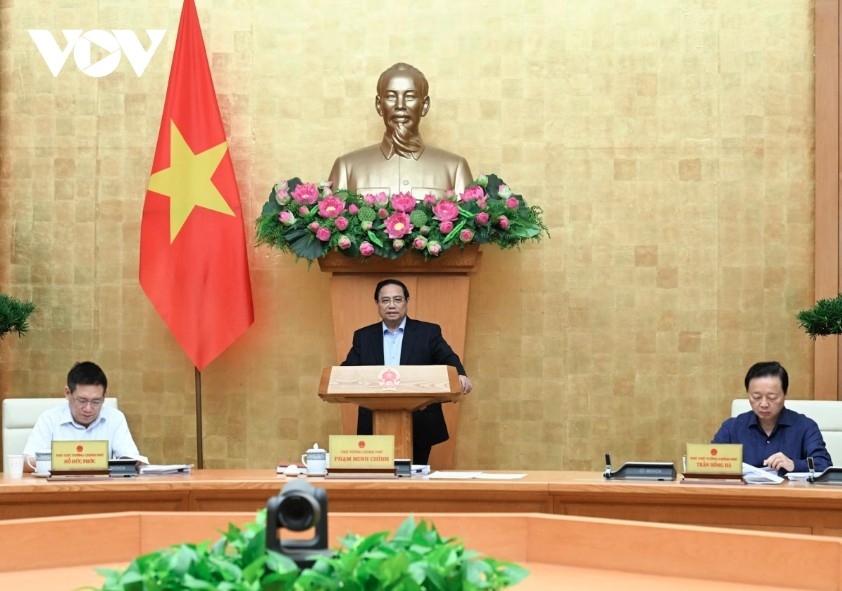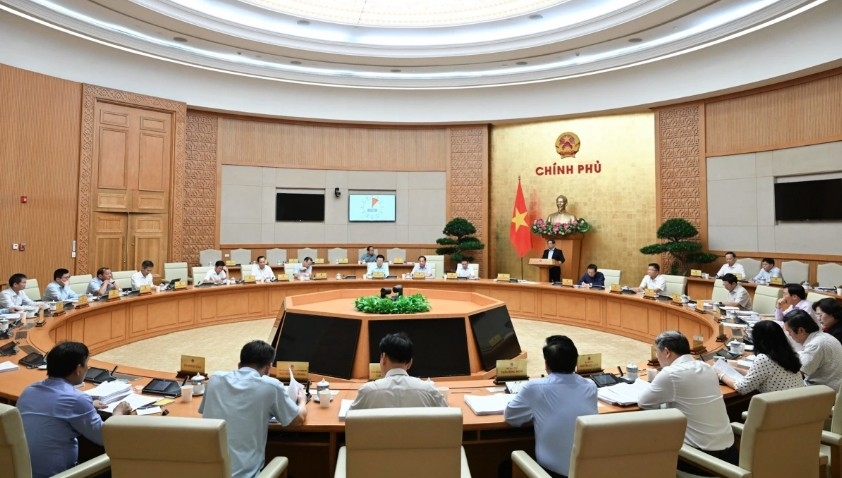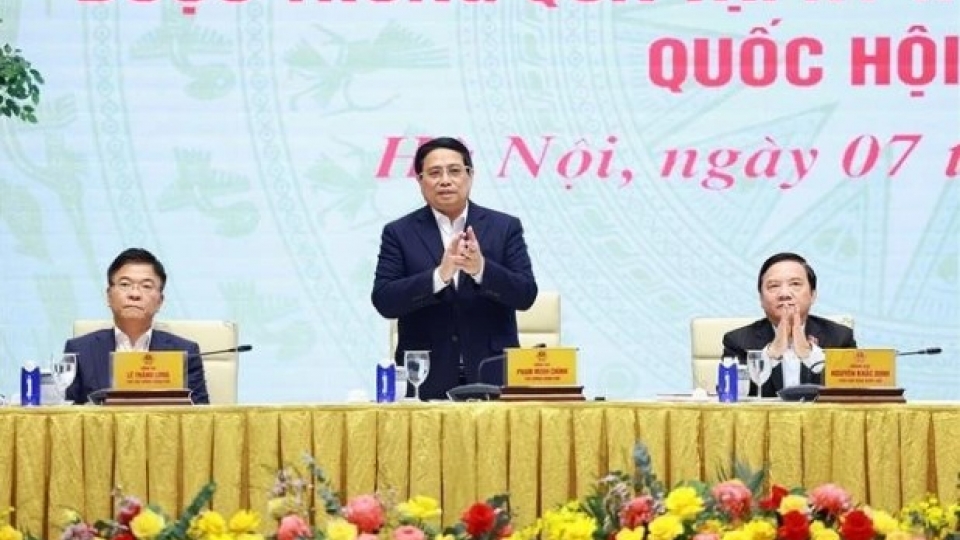PM Chinh underscores lawmaking as Vietnam's key strategic breakthrough
VOV.VN - Lawmaking is one of Vietnam’s three strategic breakthroughs and the “breakthrough of breakthroughs,” serving as a central, consistent, and long-term task.

The emphasis was made by Prime Minister Pham Minh Chinh on September 13 while chairing the Government’s September 2025 thematic session on lawmaking in Hanoi, the second of its kind, to timely give opinions on 10 draft laws and one National Assembly resolution scheduled for submission at the 10th session of the 15th legislature.
In his speech, PM Chinh stated that General Secretary To Lam, at the September 10-11 working session of the Politburo with the Government’s Party Committee and the National Assembly’s Party Committee on preparations for their congresses, called for renewed thinking in lawmaking.
In particular, the cabinet leader urged determined efforts to turn institutions and laws, currently a bottleneck, into a competitive advantage, while identifying lawmaking as “the breakthrough of breakthroughs.”
He underscored the need to remove bottlenecks and barriers, shift the government’s role from administration to one of facilitation and development that serves people and businesses, and mobilize and unlock resources for growth.
He emphasized removing bottlenecks and barriers, shifting from a regulatory state to a facilitating and development-oriented government that serves people and businesses, while mobilizing and unlocking resources for growth.
PM Chinh called on cabinet members to devote their attention, time, intellect, and experience to lawmaking, turning it into a competitive advantage in the national construction process.
He underscored the need for a spirit of determination, responsibility, and urgency, but without haste, perfectionism, or impatience, with respect for practice and using practice as the benchmark. The Government chief also requested ministers and sector leaders to review realities and to be deeply engaged in their work to identify and remove bottlenecks and obstacles.
According to the PM, countries are currently confronted with nationwide, comprehensive, and global challenges that none can solve alone. The key, he said, is to minimize their impact, step up international cooperation, reinforce solidarity, and uphold multilateralism. He stressed that in the course of integration, lawmaking must also align and harmonize with international commitments and practices in ways consistent with Vietnam’s participation.
The Government leader also highly appreciated the Ministry of Justice, Ministry of Finance, Ministry of Public Security, Ministry of Foreign Affairs, Ministry of Culture, Sports and Tourism, Ministry of Natural Resources and Environment, the Government Inspectorate, along with other relevant ministries and agencies, for their active and proactive efforts in preparing draft laws and related documents in recent times.
He underlined that completing the draft laws under discussion today holds great significance, as it will help improve the legal framework, enhance the effectiveness and efficiency of state management in key areas, and promptly address legal difficulties, obstacles, and barriers that hinder development. It will also tighten discipline and order, refine mechanisms for preventing, detecting, and handling corruption, strengthen transparency and openness in public service activities and in the management of officials’ assets and incomes, mobilize the strength of the entire people, provide a legal basis to guarantee and exercise citizens’ rights in filing complaints and denunciations, and establish special mechanisms and policies for Vietnam to actively and proactively integrate into the international community.
PM Chinh also stressed the importance of promoting the application of science, technology, and artificial intelligence (AI) in lawmaking, and of fully incorporating feedback from scientists, experts, the public, and affected groups. He accentuated the need for clear thinking, strong determination, great effort, and decisive, results-oriented action with a major focus and priorities, while fostering new mindsets to adopt more effective approaches.
At the session, cabinet members gave their opinions on the draft laws.




